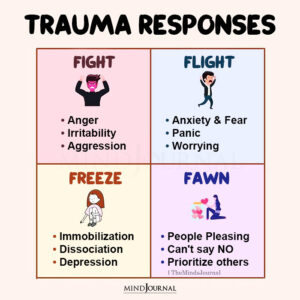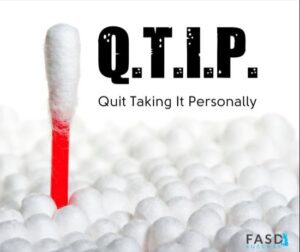
Parents tell me all the time that their child is SO controlling and manipulative. I try to gently remind them that this is a leftover adaptive behavior that served them well before they came to them. Most of the kids I work with come from an unpredictable and scary places and traumatic homes, and they needed to act in charge, sometimes craftily, to survive. If you didn’t know where your next meal was coming from, you would be rather fierce and rigid about food and your surroundings. If you never knew if you were going to get punched, you would need to always be on the lookout for a change in your environment. These controlling and manipulative behaviors are trauma responses. Unfortunately, they are often misunderstood by families, schools, and mental health practitioners. Frequently, children will get labeled as defiant when all they are doing is still trying to survive. That defiance and hyper-arousal at times leads to the psychiatric labels of Oppositional Defiant Disorder, Anxiety, and ADHD. Keep reading to learn a different way to view and help your controlling and manipulative child.
Fear Is Under The Behavior
Our adopted kids have solid reasons and motives for what they do or do not do. It is so easy to misunderstand these reasons and assign them as on purpose and manipulative. Alas why would a child still be acting from a place of fear when they are safe in your home. Fear is a trauma response that can disguise itself as anger, meltdowns, and defiance. If we pause for a moment to understand that our children’s bodies are simply afraid. Their bodies are tricking them into still feeling unsafe. Unfortunately this is this is what trauma does to our kids’ brains. It is a hard pill to swallow as a parent when you have done everything to love your child and yet they still operate from fear. But what if you step back and become curious about your child’s outbursts, their defiance, their anger. What if you take a moment to see the little broken child who is just trying to protect themselves. What if you stop imagining malicious intent behind your child’s hard to manage behaviors and instead meet them with safety and compassion?
So What Does This Have To Do With Mental Illness?
Imagine what happens if you are constantly afraid, hungry all the time, looking out for the next danger, always doubting yourself? Imagine what it would feel like to have literally acted as the parent in your home until the age of 6 and then all of a sudden being treated like the child that you are? Imagine you have strong memories of being so very hungry and now there is plenty of food but you cannot stop yourself from eating too much. Imagine hating yourself because duh, your biological parents abandoned you and someone told you it wasn't your fault but because they were not able to keep you safe. Obviously your fault! You were not good enough! But now your new family is telling you how much they love you and how great you are. You will never fall for that lie!
These are some of the scenarios adopted kids from early complex trauma actually experience. The results include the inability to pay attention, feelings of sadness, constant worry; basically mental health diagnoses. And if you read my colleague’s previous piece in this newsletter, you see why having a mental illness needs to not be a shameful thing. So again, wrap your children up in love and understanding. Make time to connect with them through play no matter how old they are. Take them to the Psychiatrist and Counselor. Get them some medicine to help with their trauma symptoms. Look past their anger directed at you. Learn new parenting skills to support the child you have. They need you.
 Quit Taking it Personally
Quit Taking it Personally
This saying is an inside joke for our Adoption and Foster Care Team. Not that we are making fun of parents at all. We all all guilty of this. It is almost impossible not to take our children personally: their successes and failures. I get it. But our kids need us to quit taking it personally. They need us to get a grip and see beyond and within their nasty behaviors. They need us to be their rock, their anchor, their moral compass. They need us to stay calm when they freak out. They need us to check our own unresolved baggage at the door. They need us to get them professional support when they need it. They need us to emotionally hold them and make sense of their worlds. They need us to understand that they experienced trauma and are still working through it. They need us to make them believe that just because they have depression, anxiety, mood issues; we think they are wonderful and will stand by them as they heal.





